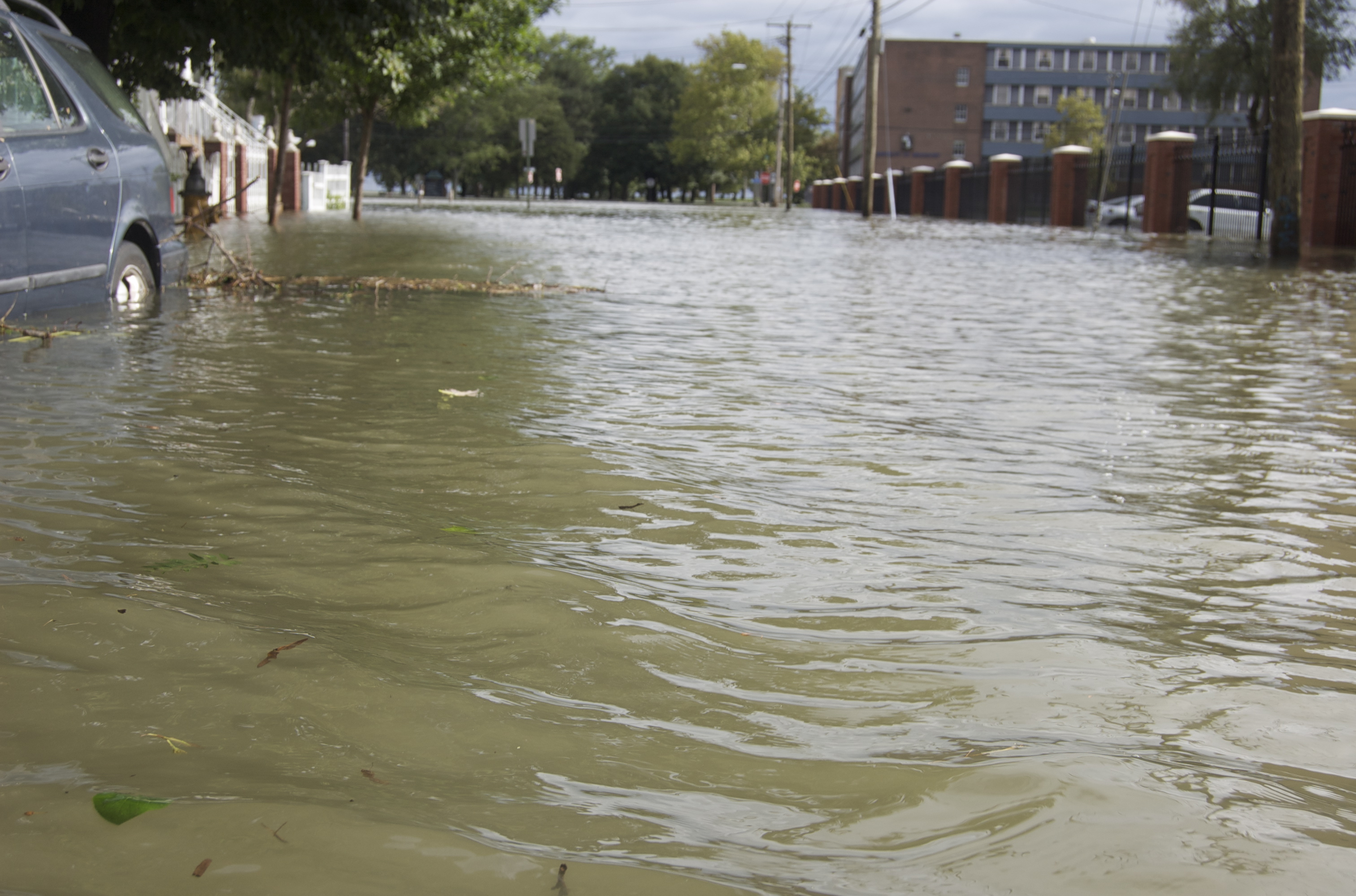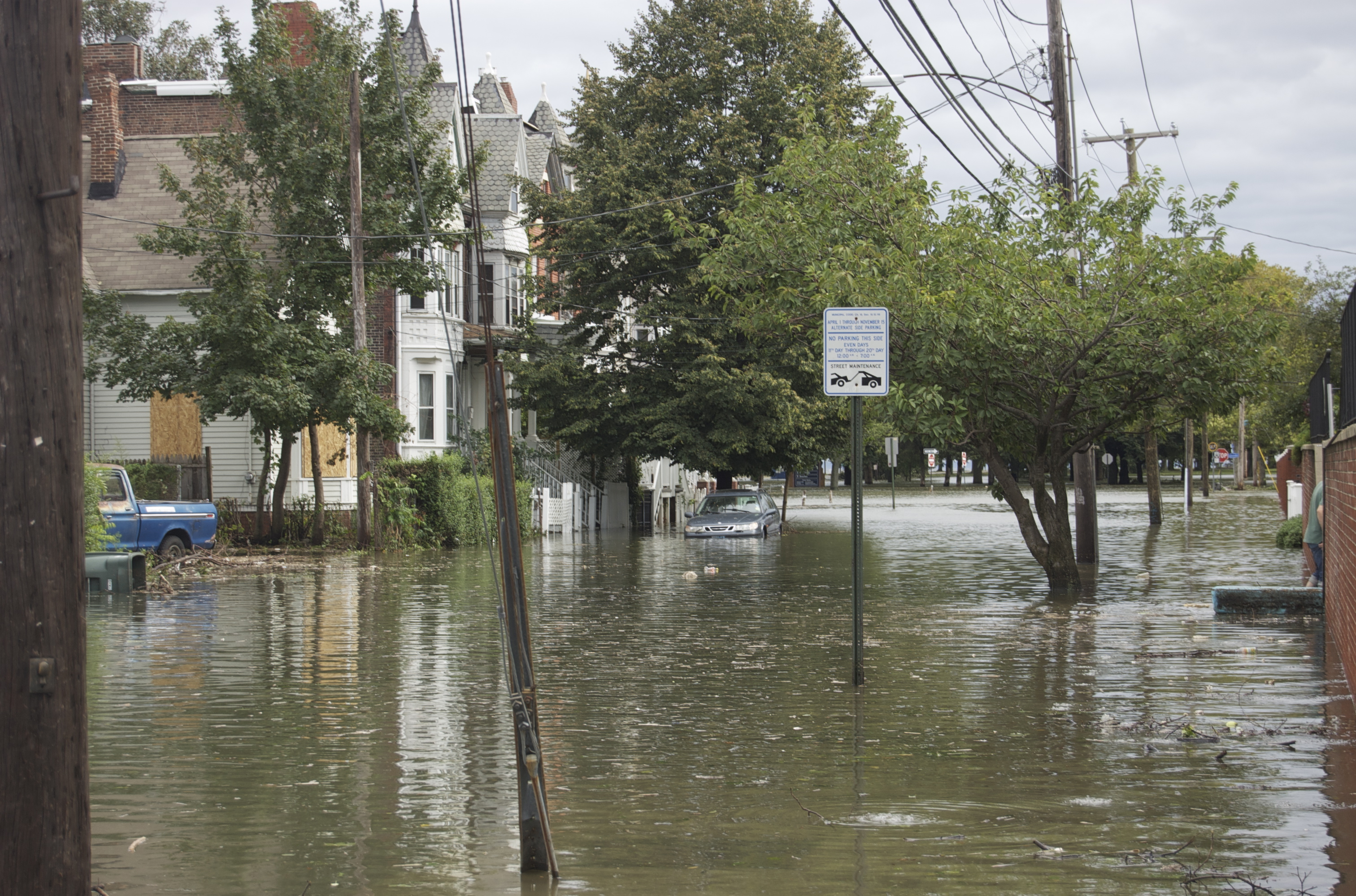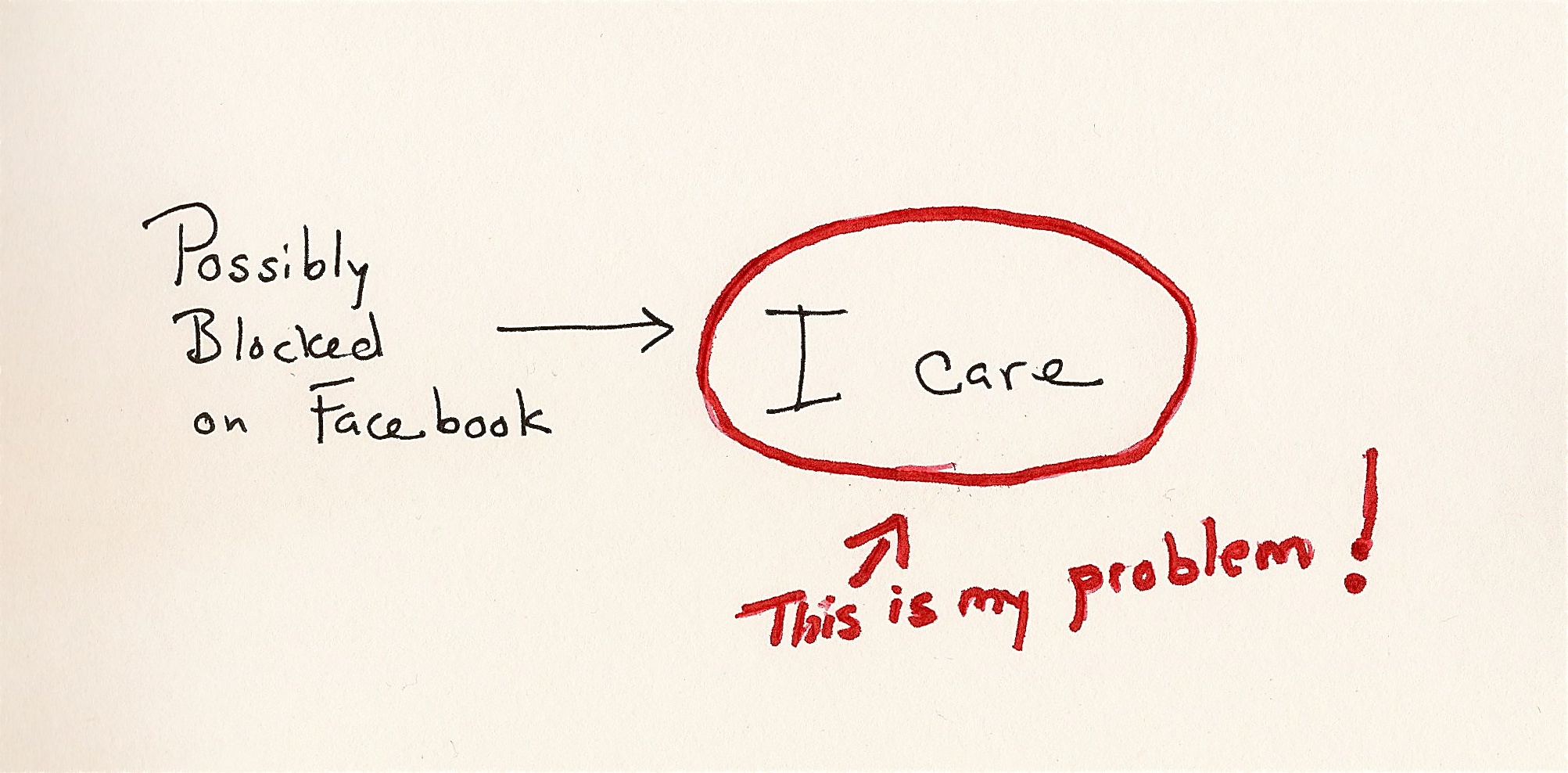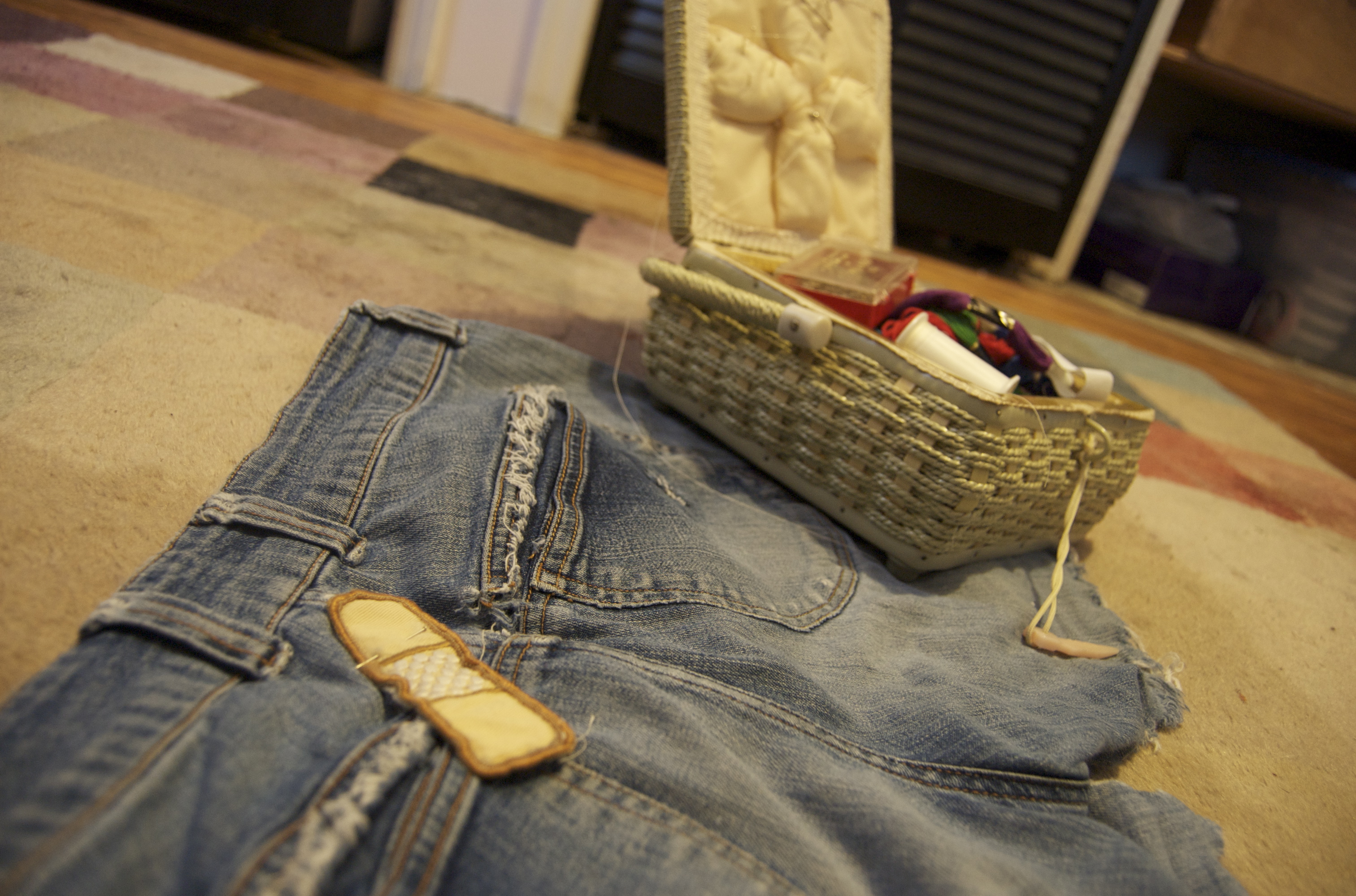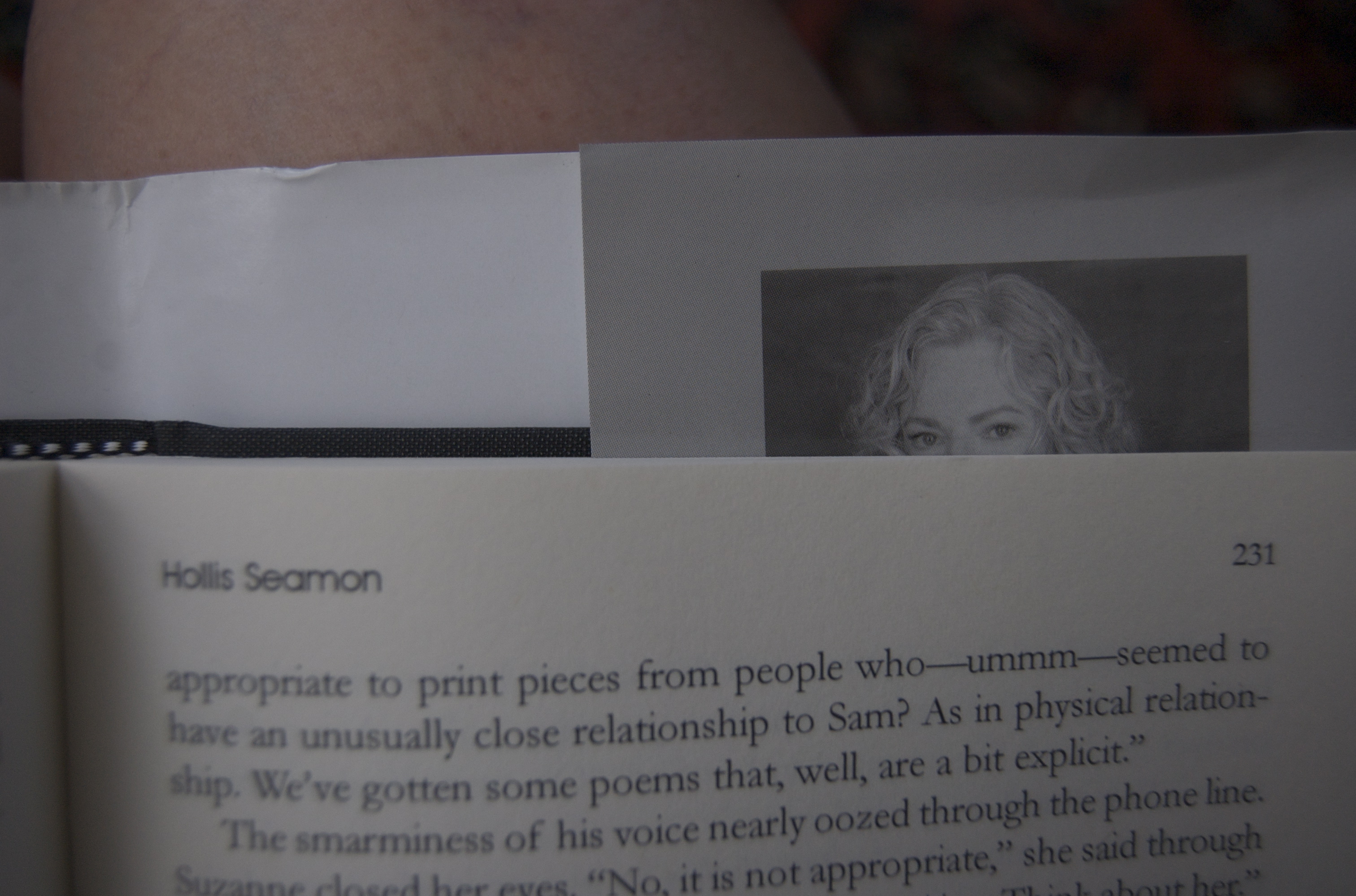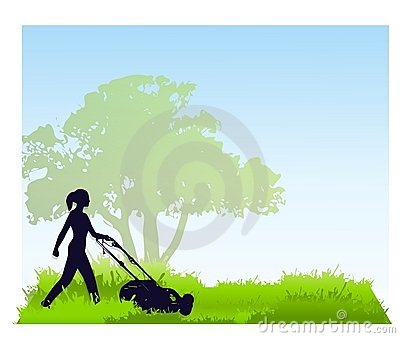We’ve been on a cleaning and drying spree after Hurricane Irene let part of the Atlantic ocean into our basement. Let there be no illusions about this work – the basement clean-up has been a long, long time in coming. Irene and her shenanigans merely forced our collective hand. If you want an idea of how we’ve been using our basement, you need look no further than Arlo Guthrie’s seminal work “Alice’s Restaurant Massacree.”
If you remember, Alice and her husband Ray lived up in the bell tower with Fasha the dog, and left all their garbage in the church below.
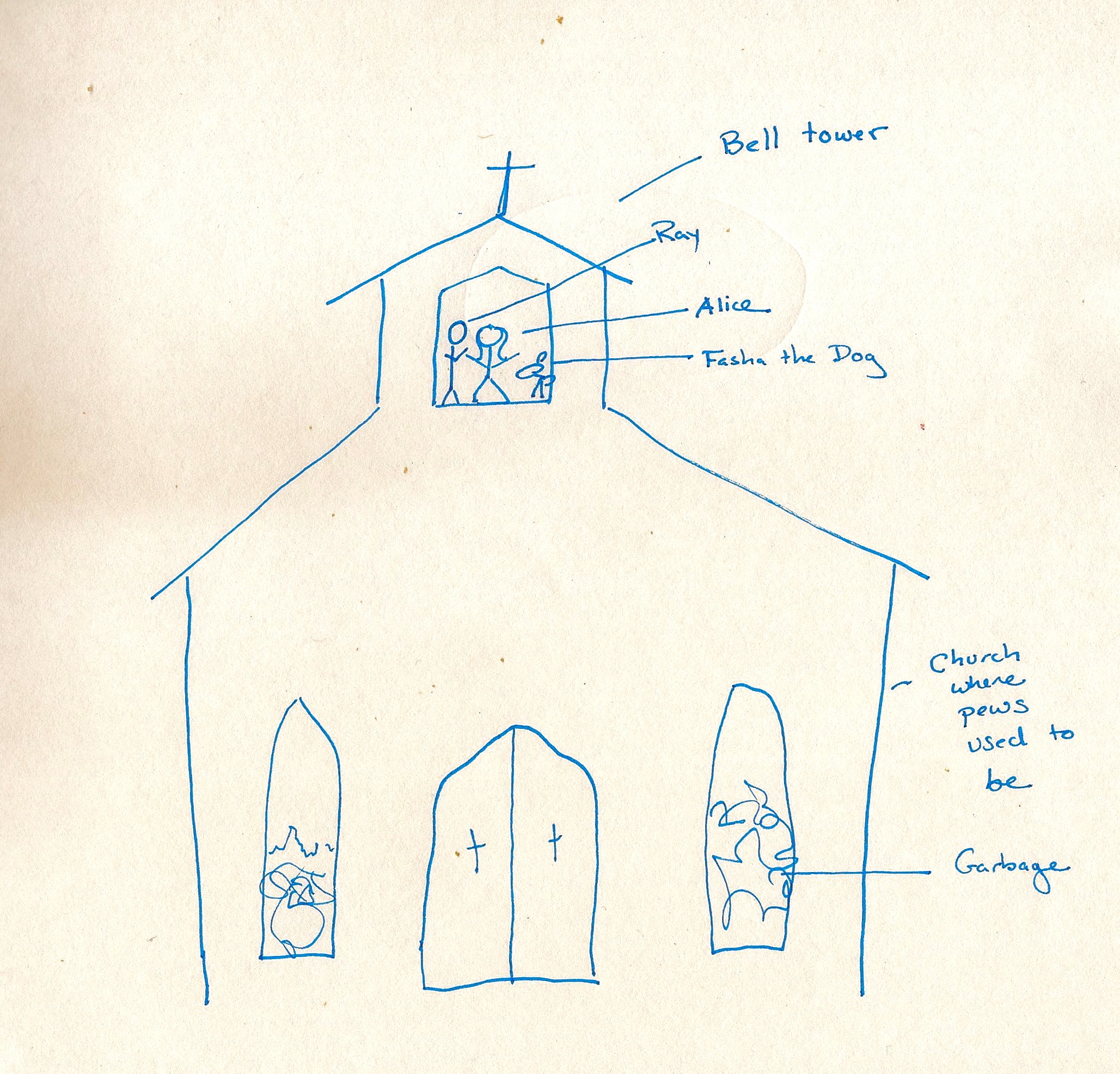
"Havin' all that room, seein' as how they took out all the pews, they decided that they didn't have to take out their garbage for a long time."
You can almost make this simile into a mathematical equation:
If I = Alice, my husband = Ray, Esther = Fasha the dog, then the basement = the church, where the pews used to be, and there must be a LOT of garbage down there.
Going through it all is an interesting process. Often it’s been distressing (we’re replacing a lot of appliances this week), sometimes depressing (for some reason, I was deeply saddened by the loss of my Christmas wrapping paper), and occasionally, felicitous. (Buh-bye, husband’s ginormous speakers that look like Stonehenge! Au revoir, unwanted furniture that we couldn’t get rid of because sometimes we need extra chairs! Peace out, box of random stuff that we were keeping for unknown reasons!)
Sometimes, this clean up is just interesting. I spent part of this morning, after dragging soggy crap up from the basement and before coming up to my (thankfully) dry office to start work, cleaning old photos. This was a great job, mostly because it was a less nasty alternative to cleaning out the food in the upturned chest freezer downstairs.
They were pictures of my husband’s family, mostly photos from the ’60s, and I had to separate them, dunk them in fresh water and lay them out quickly to dry. This felt like an amazing amount of responsibility because these are old photos that had been floating in saltwater. There are no negatives, at least not on this side of the Mississippi, and many of the people and places in the photographs are long gone. One false move with the tweezers or a thumbnail and someone could lose a face, or a head, or an aunt, sitting at the kitchen table.
We were lucky. We only lost a few. I laid the survivors out on newspaper on our kitchen table. I’ve never understood people who are willing to go into their burning homes to try and save their family photos, but this morning, as I stood, looking at the mosaic made up of all these people I’ve heard about, but have never met, I realized why. These are faces that will never be seen again. Some are deceased, some are just changed. My husband will never be a little boy again. That big turtle will never cross the dirt road in front of that house again. Those people will never again gather to sit on the back of that truck and smile.
And even if the people in the photographs remember sitting there, with those smiles and each other, there will be people like me, who weren’t at the party, but wanted to feel as though they were.
This is just the first batch. There are much older photos in the basement, photos of nameless turn-of-the-century girls with fishing nets and bathing costumes and vaguely familiar facial features. I know they’re down there, but we haven’t found them in the debris. I’m not sure we’ll be able to save those, but I will try.

